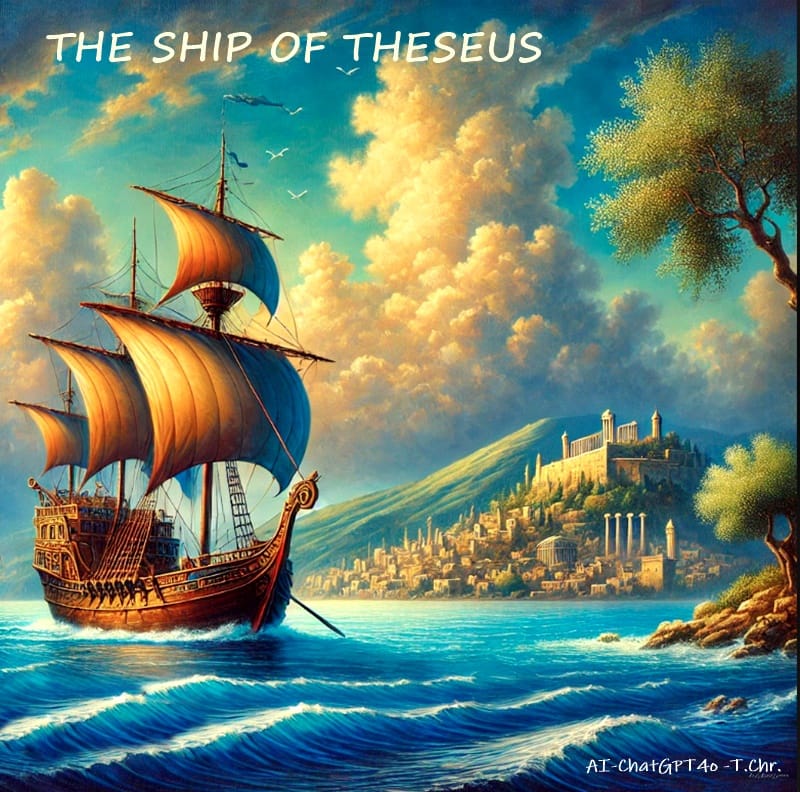DO NORWAY AND THE SHIP OF THESEUS HAVE COMMON GROUND?

By AI-ChatGPT4o- Tome- T.Chr. - Human Synthesis- 18 Sep 2024
The Ship of Theseus continues to navigate the minds of philosophers and thinkers. Over time, it has grown into a broader exploration of identity—one that applies to people, nations, and even ideas.
Much like the ship, humans undergo constant change, replacing cells, thoughts, and experiences as they age. Yet, we often regard ourselves as the same person throughout life. This paradox challenges the boundaries of selfhood and how we define continuity amid transformation.
In some interpretations, the Ship of Theseus is seen as a metaphor for personal growth. Though the ship’s materials are replaced, its spirit and function remain intact, much like how people evolve but retain core elements of identity. Others argue that identity is fluid, and what defines us changes as the components of our lives shift, making the ship a symbol of impermanence.
The philosophical purpose of the Ship of Theseus is to encourage reflection on the nature of existence itself. It compels us to ask whether identity is fixed or whether it is shaped by time, context, and transformation. Ultimately, the ship’s story is a mirror, reflecting back to us the complex relationship between change and permanence, challenging us to redefine what it means to endure through life’s inevitable transformations.
While Norways population is undoubtedly changing, the question of whether it will "disappear" depends on how its institutions, people, and policies navigate this transformation.

Much like the philosophical puzzle of the Ship of Theseus, the essence of Norway may persist, but in a form that reflects a modern, evolving identity. The nation’s ability to balance continuity and change will determine its future.
